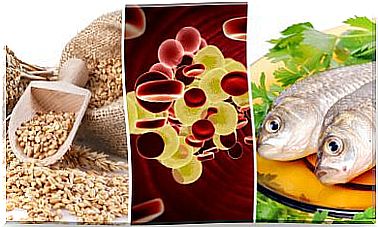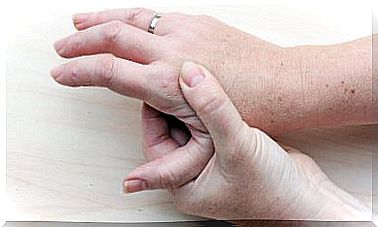Festive Heart Syndrome: Causes And Consequences
The festive heart syndrome is characterized by the presence of very powerful beats in the heart, after having consumed large amounts of alcohol in a short time. These episodes are more frequent in the seasons of celebrations.

Holiday heart syndrome is a heart condition that occurs in healthy people who indulge in excesses during the holidays. This disorder was discovered by Dr. Philip Ettinger, in 1978, after analyzing a group of 24 patients with episodes of abnormal heart beats.
All of the patients Ettinger analyzed had one thing in common: they had consumed large amounts of alcohol at a celebration. Those affected had abnormalities in the heart’s electrical system, although none of them had a history of heart problems.
The finding aroused skepticism, but a scientific review carried out in 2013 confirmed the existence of the festive heart syndrome. Data indicates that this condition increases by 15% during the end of the year holidays and that it affects more men than women.
Main symptoms

The main symptom of the festive heart syndrome is the presence of strong palpitations in the heart. Many describe it as a “cardiac acceleration” and indicate that it is “as if the heart wanted to go out through the mouth.”
Some people have additional symptoms, which are considered indicative of a hospital emergency, such as the following:
- Dizziness
- Chest pain.
- Loss of consciousness.
- Difficulty breathing or feeling short of breath.
In principle, the festive heart syndrome is considered a form of cardiac arrhythmia. However, sometimes the heart begins to pump blood poorly, which is a sign of heart failure. In most cases the symptoms disappear when the body metabolizes all the alcohol ingested.
Read: Drunkorexia: stop eating to drink alcohol
Why happens?
Holiday heart syndrome, also known as vacation heart syndrome , is caused by excessive alcohol intake. However, science does not yet understand the mechanisms by which this substance causes this type of reaction.
Alcohol is considered a toxic substance for the heart. The effects are more severe when consumed in large quantities and in a short period of time. This leads to more adrenaline and norepinephrine being released, two hormones that increase the heart rate.

The consequence of this is that cardiac arrhythmia occurs, the most common form of which is atrial fibrillation. The episode itself is not serious. It most commonly resolves within 24 hours, but there are also a few cases where symptoms persist.
Adding excessive food consumption to alcohol intake increases the risk of festive heart syndrome. And if to this is added inadequate rest and additional stress from social activities, shopping, etc., one of these episodes is more likely to occur.
Care and preventions to avoid this condition
It is important to emphasize the fact that the festive heart syndrome occurs in healthy people, that is, without a history of heart disease. Therefore, excessive alcohol consumption is risky for anyone, sick or not.
The best way to prevent one of these episodes is by avoiding excess alcohol consumption. As a general rule, the safe amount of liquor for a man is a maximum of two drinks a day; for a woman, no more than one drink a day.
Likewise, the following tips should be taken into account:
- Get regular physical activity.
- Maintain a balanced and healthy diet.
- Avoid heavy meals or meals with excess fat.
- Hydrate well before, during and after consuming alcohol.
- Get enough sleep and take breaks during the day to rest.
- Reduce salt in meals and be moderate with the consumption of sugar.
Keep in mind that some people are particularly sensitive to alcohol. In them, a single cup may trigger episodes of cardiac arrhythmia. Likewise, it should not be forgotten that, in some circumstances, arrhythmia can be life-threatening. That is why it is best to see a doctor if symptoms are pronounced.

Final recommendations
There are more than 200 diseases and disorders that are caused by excessive alcohol consumption, according to data from the World Health Organization (WHO). Ethanol weakens the walls of the heart muscle and increases blood pressure. In other words, it threatens good heart health.
Although the most common is that the festive heart syndrome does not generate consequences to regret, the truth is that you can not be sure that there are no complications. This is especially true for older people and for those with additional health problems.
The end of the year festivities are more than conducive to falling into excesses. The most advisable thing is to enjoy them with measure and prudence, so that a few more drinks will not end up in the emergency room of a hospital.









